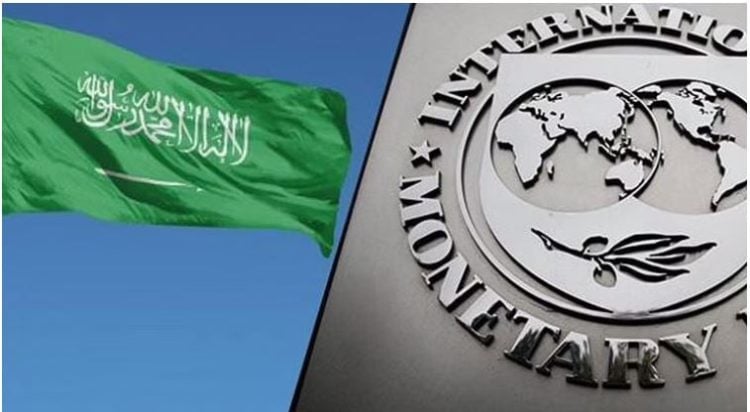Publisher: Maaal International Media Company
License: 465734
IMF: Kingdom has lowest inflation rate among GCC countries
International Monetary Fund revealed that the growth of the non-oil sector in the United Arab Emirates and Saudi Arabia is the highest among the Gulf Cooperation Council countries, with a growth rate of 4.5% in Saudi Arabia during the first half of this year, driven by an increase in domestic demand, an increase in total capital flows, and the implementation of reforms. Pointing out that the Kingdom has achieved a decline in inflation rates compared to the rest of the Gulf countries
Al-Sandouf explained in his report, “The Expected Economic Prospects and Policy Priorities in the Gulf Cooperation Council Countries,” issued a short while ago, that inflation in the Gulf Cooperation Council countries does not It is still under control, as inflation in the region averages about 3.3% on an annual basis in 2022, which is A significant increase compared to 2.2% in 2021, and the largest increases were recorded in Bahrain, Qatar, and the United Arab Emirates, and the lowest in Oman, while inflation declined in Saudi Arabia by the end of 2022.
The report indicated that real estate prices are rising rapidly in Dubai and at a low rate in Saudi Arabia, while rents in Kuwait have risen significantly.
اقرأ المزيد
He explained that public financial balances are still strong in the countries of the region, supported by financial reforms and high oil prices. The primary non-oil deficit is expected to decline to 24% of GDP by 2028, with non-oil revenues rising, reflecting continued financial and structural reforms and containment of expenditures.
The Fund expected inflation to remain under control at 2.6 percent in 2023 and 2.3 percent in 2023 and 2024, to converge with that in the United States in the medium term, with the currency tied to the US dollar.
He stressed that unemployment rates in the countries of the region are declining, but they are still higher than levels before the Corona pandemic in some countries of the region. However, in Saudi Arabia, they recorded noticeable declines as a result of the economy’s full recovery from the Corona pandemic and the economy’s return to employing expatriates at a time when Employment rates for citizens continued their upward trend despite not being affected by the Corona pandemic, as unemployment rates among Saudis continued to decline.
The Fund recommended that the countries of the region implement a comprehensive package of policies to confront shocks and the atmosphere of uncertainty in the global economy in the short term and address the challenges In the medium and long term, in the short term, public financial policies should remain in their current position. Be cautious in spending and rebuild protective margins. And to take advantage of the rise in oil prices, monetary policy in the Gulf Cooperation Council countries should continue to follow the path of The US Federal Reserve closely monitors financial stability risks.
In the medium term, the Fund recommended that the Gulf Cooperation Council countries continue their efforts to control public financial conditions in a consistent manner. With the goal of ensuring intergenerational justice and sustainability, this goal can be helped to achieve by making efforts to mobilize Non-oil revenues, phasing out energy subsidies, and rationalizing expenditures while raising their level of efficiency, and strengthening social safety networks.
The Fund recommended that countries in the region continue implementing reforms in the financial sector to support growth and stability, noting that the financial sector is characterized by greater soundness. Implement it, based on ongoing efforts, which should be continued to deepen financial markets and capital, strengthening macroprudential and regulatory safety frameworks, and ensuring effective oversight in The financial sector, including digital activities and financial technology, as well as promoting sustainable development, and implementing the necessary measures to strengthen anti-money laundering and terrorist financing frameworks.









